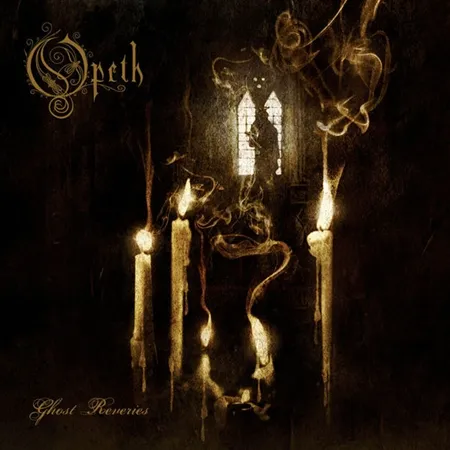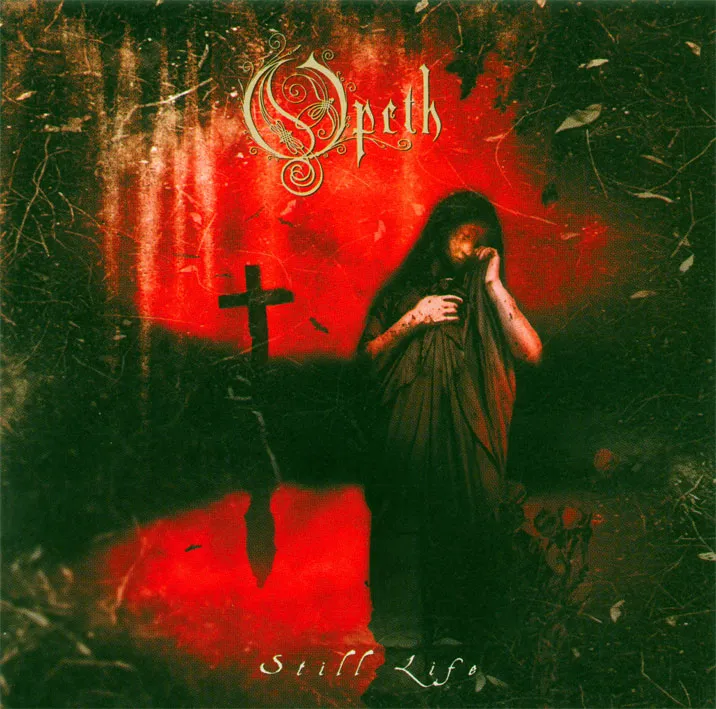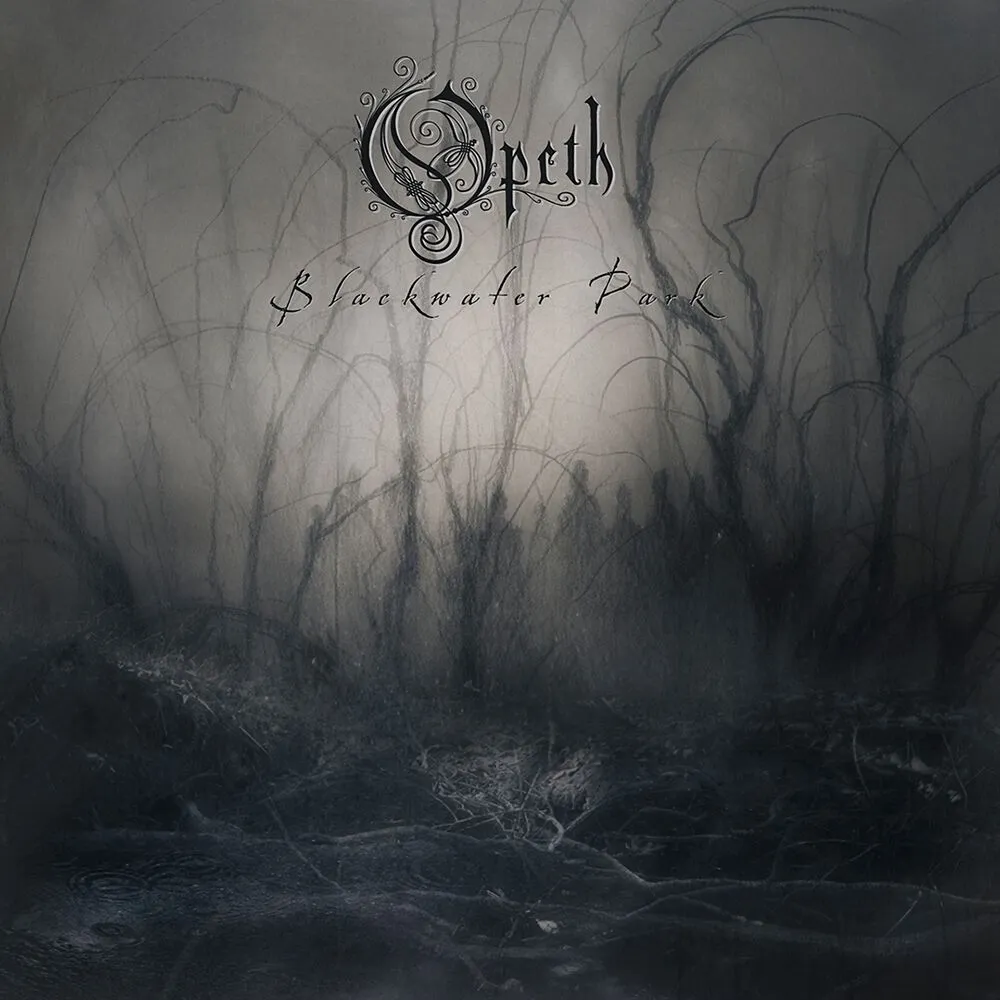Opeth Albums Ranked
Attempting to follow the path of the blogger metalheads who did the Opeth Albums Ranked From Worst to Best post, is nothing short of arduous. In my case, we’re talking about my favorite band. Additionally, depending on the moment, there are albums that I enjoy more and others that I enjoy less. However, the truth is that objectively, there isn’t one that can truly be labeled as a failure, as there’s always a segment of the fandom that appreciates a less acclaimed album. In short, before delving into the subject, for those not familiar with the band, let’s begin with an introduction to Opeth’s evolution from their beginnings to the present period.
Opeth’s History: The Continuous Evolution
Opeth, formed in Stockholm, Sweden, in 1990, is a progressive metal band renowned for its dynamic soundscapes and genre-defying approach. Founded by guitarist and vocalist Mikael Åkerfeldt, Opeth has undergone a remarkable evolution over the years.
Early Years (1990s)
In their formative years, Opeth embraced a style rooted in death metal, evident in albums like “Orchid” (1995) and “Morningrise” (1996). However, even in these early works, the band displayed a penchant for complexity and atmospheric elements.
Progressive Shift (Late 1990s – Early 2000s)
Opeth’s sound took a dramatic turn with the release of “Still Life” (1999) and “Blackwater Park” (2001). These albums marked a shift toward progressive metal, incorporating acoustic interludes, clean vocals, and intricate song structures. Mikael Åkerfeldt’s distinctive growls coexisted with haunting melodies, establishing Opeth’s signature style.
Exploration and Experimentation (Mid-2000s – 2010s)
The mid-2000s saw Opeth delving further into progressive metal territory with albums like “Ghost Reveries” (2005) and “Watershed” (2008). Clean vocals became more prominent, and the band continued to experiment with diverse musical elements. “Heritage” (2011) showcased a departure from metal, embracing a pure progressive rock sound.
Later Works and Continued Innovation (2010s – Present)
Opeth’s later releases, including “Pale Communion” (2014) and “Sorceress” (2016), maintained a progressive focus while exploring a range of influences. Their most recent works, such as “In Cauda Venenum” (2019), reflects a synthesis of Opeth’s extensive journey, blending progressive rock with moments of metal intensity.
Throughout their history, Opeth has consistently pushed boundaries, earning acclaim for their intricate compositions, profound lyrics, and Mikael Åkerfeldt’s versatile vocals. Their ability to evolve while retaining a core identity has solidified Opeth as a pioneering force in the world of progressive music.
Opeth Album Tier List
The Tier List format is a great way to set a categorization for ranking Opeth albums from worst to best. In this ranking of Opeth’s albums, the records are ordered from worst to best, meaning the one located furthest to the left is the best in each category.

Opeth Albums Ranked from worst to best
Let´s find out which is the best Opeth album.
Heritage – 13º
“Heritage” stands as a pivotal moment in Opeth’s discography, showcasing the band’s willingness to evolve and experiment. While it has its admirers who appreciate its departure from the metal realm, others find its progressive rock exploration less captivating, labeling it as lacking in direction, excitement, and dynamic contrast. Opinions on “Heritage” often hinge on individual expectations and preferences, with some embracing the band’s bold venture into uncharted musical territories, and others yearning for the familiar intensity that defined Opeth’s earlier works. From my point of view, they made a misstep with this beginning but they refined his approach not so long after that with Pale Communion.

Sorceress – 12º
“Sorceress” showcases Opeth’s continued exploration of progressive rock, offering moments of brilliance with standout tracks like “Persephone,” “Strange Brew,” and “Will o the Wisp.” However, its notable similarity to “Heritage” and the absence of a clear approach may leave some fans yearning for the band’s earlier metal intensity, as it happens with the albums of their progressive rock era. The album’s atmospheric consistency, while a strength in individual moments, may contribute to a challenge in completing the entire record in a single sitting, as its overall flow lacks the dynamic shifts that characterized Opeth’s earlier, more diverse works. They improved Heritage, but not so much. Enough for being categorized as a C.

In Cauda Venenum – 11º
“In Cauda Venenum” (2019) presents a perplexing addition to their discography. The release of both Swedish and English versions feels unnecessary, potentially causing the listener to have an initial dilemma when deciding which album to listen to. Additionally, listening in a single session proves challenging due to its atmospheric consistency, lacking dynamic shifts.
Despite these hurdles, standout tracks like “Lovelorn Crime” and “Heart in Hand” showcase Opeth’s emotional depth and musical intricacies. The album, however, lacks the grand, epic moments of their earlier releases. The intriguing and mysterious concept (death and the fragility of life) adds depth, but the overall execution leaves some listeners longing for the band’s previous dynamic brilliance. In essence, In Cauda Venenum is a mixed bag, but a brilliant one after all.

Deliverance – 10º
Opeth’s “Deliverance” album, released in 2002, stands as a testament to both potential brilliance and missed opportunities. While the arrival of Steve Wilson added a layer of enhancement, it was arguably a bit late in the creative process. The album boasts great moments, particularly in certain segments of the songs, where Opeth’s musical prowess shines through.
However, these highlights are often eclipsed by unnecessary and meandering elements, diluting the overall impact. The production quality, regrettably, falls short, with a lack of clarity and depth that hampers the listening experience. This, coupled with what seems like a lack of inspiration in parts, leaves “Deliverance” feeling like it falls short of the greatness it could have achieved. The potential for a standout album is evident, but the scattered nature of the compositions and the lack of a cohesive formula prevent it from reaching its full potential. With a more focused approach, “Deliverance” had the ingredients to be a stellar Opeth release, but unfortunately, it falls into the realm of missed opportunities and unrealized brilliance.
Despite these issues, if you know where the epic moments of this album are, you will truly enjoy Deliverance. Best tracks: A Fair Judgement, For Absent Friends, By the Pain I See in Others.

Damnation – 9º
Opeth’s “Damnation” album, released in 2003, stands out for its exceptional production quality, setting a standard that few can match. The album provides a thoroughly pleasant listening experience, marked by a sonic clarity that allows every nuance to shine through. However, its repeated listens might reveal a certain monotony, as the initial allure can wear off, making it feel somewhat predictable.
Conceptually and lyrically, “Damnation” excels, showcasing Opeth’s ability to craft a cohesive narrative and deliver emotive storytelling. Yet, the album’s lack of dynamic changes can be a double-edged sword. While it contributes to a consistent and contemplative mood, it may also lead to a sense of emotional flatness, particularly for those expecting the dramatic shifts characteristic of Opeth’s other works.
Remarkably accessible, “Damnation” could be seen as a departure from Opeth’s signature style, making it more easily replicable by other bands. While this accessibility broadens its appeal, it also places it in a realm where it might be perceived as less distinctive within the progressive rock genre. In essence, “Damnation” shines in its production brilliance and conceptual strength but falls short of the dynamic and innovative qualities that defined other Opeth masterpieces, even though this album is one of their most acclaimed pieces. I respect that, by the way, but I do not agree at all.

Watershed – 8º
“Watershed,” released in 2008, is a multifaceted album that elicits mixed reactions. The unnecessary extended version, featuring dull tracks, contributes to a sense of redundancy and can make it challenging to complete the album in a single listening session. It also happens with the original piece. The overall quality of the album seems to lie more in its individual tracks rather than as a cohesive whole.
Despite these drawbacks, “Watershed” boasts standout moments, especially in tracks like “The Lotus Eater,” “Burden,” and “Hessian Peel.” These songs demonstrate Opeth’s ability to create epic moments within their compositions, reaffirming their mastery in music wit. The production quality is commendable, enhancing the sonic experience and providing a fitting farewell to the band’s old sound while ushering in a new era with the debut of new members.
In a nutshell, “Watershed” is a dichotomy — a collection of tracks with high points and lackluster moments, a mix of farewell and introduction. While it may not shine as a cohesive album, it serves as a pivotal moment in Opeth’s journey, marking the end of an era and the inevitable beginning of a new chapter.

Morningrise – 7º
“Morningrise,” despite its extended tracks and album length, surprisingly lends itself to a seamless and immersive single-session listening experience. The production may not boast the clarity of later releases, but the rawness becomes an integral part of the album’s concept and approach, capturing a certain authenticity. The vocals, while not reaching the heights of later Opeth albums, reflect a point in Mike’s journey where improvement and evolution become evident.
The instrumental sections are a standout feature, showcasing Opeth’s early prowess in crafting dynamic changes, particularly evident in the acoustic segments. “To Bid You Farewell” stands out as one of Opeth’s best tracks, a testament to the band’s early ability to create emotionally charged and intricate compositions. However, “Black Rose Immortal” could have benefited from being split into separate tracks to alleviate the sense of length, preserving the impact of its individual sections.
“Morningrise” remains an original and innovative piece in Opeth’s discography, a snapshot of the band’s early creativity and a precursor to the refined sound they would later achieve. Despite its imperfections, it stands as a testament to Opeth’s ability to push boundaries and create something wholly unique within the progressive metal genre, while at that stage they were also Death Metal.

My Arms, Your Hearse – 6º
“My Arms, Your Hearse” stands as a powerful testament to the band’s early creativity and innovation. The album is enriched with a compelling concept, featuring epic moments and remarkable tracks such as “When,” “Demon of the Fall,” “Karma,” and the cover of “Remember Tomorrow.” The lyrics are a standout, showcasing complexity, richness, and a seamless cohesion with the music that could arguably be considered for a Nobel Prize in Literature.
What sets this album apart is its fantastic balance between raw, harsh compositions and softer, more contemplative sections. Opeth masterfully navigates the dynamic shifts, creating a multifaceted listening experience that reveals their prowess in crafting diverse sonic landscapes. Yet, amid the brilliance, there are moments where the album leans towards being too noisy and chaotic. This aspect, combined with an average production quality, poses a challenge to the overall listening experience. In an album where subtleties and intricacies play a significant role, the production falls short of fully capturing the breadth of Opeth’s artistic vision.
To sum up, “My Arms, Your Hearse” remains a crucial chapter in Opeth’s discography, setting the band into a towering level with its uniqueness, even though it is not one of my preferred ones. Despite this, I appreciate the album in an objective way.

Orchid – 5º
Opeth’s debut album, “Orchid,” released in 1995, exudes an attractive raw appeal that sets the stage for the band’s future brilliance. This album is a captivating miscellanea of sounds and genres, showcasing Opeth’s early exploration of a distinctive musical identity. “Orchid” is an enjoyable listen, characterized by its idiosyncratic nature, offering a more entertaining version of the band’s subsequent work, particularly “Morningrise.”
Within “Orchid,” instrumental sections shine brightly, displaying Opeth’s early mastery of dynamic and diverse soundscapes. Notably, the occasional infusion of jazzy vibes adds a unique and charismatic personality to the album, setting it apart within the metal genre. However, akin to “My Arms, Your Hearse,” “Orchid” can be overwhelming due to its dynamism.
The album boasts a rich repertoire of melodies spanning different styles, showcasing Opeth’s versatility and hinting at the multifaceted journey the band would embark on in the years to come. In essence, “Orchid” is an introduction to Opeth’s musical initial universe, where raw energy and diverse influences converge to lay the foundation for their groundbreaking career.

Ghost Reveries – 4º
“Ghost Reveries,” released in 2005, stands as an excellent addition to their discography. While not strictly a concept album, it weaves a rich tapestry of unique and original compositions, showcasing the band’s diverse musical influences. The incorporation of the Hammond organ adds a distinctive touch, contributing to the album’s atmospheric richness.
The production quality is nothing short of fantastic, complementing Mikael Åkerfeldt’s great vocals, smart drumming from Martin Lopez, and great riffs from Mike and Peter Lindgren. The album strikes an excellent balance between heavier and softer songs, creating a dynamic listening experience. Standout tracks like “Beneath the Mire,” “Isolation Years,” “Hours of Wealth,” and “Reverie/Harlequin Forest” rank among Opeth’s best. However, after multiple listens, the album’s appeal seems to diminish somewhat. While initially enjoyable as a full experience, a preference for individual songs becomes apparent from my point of view, maybe because I have listened to it thousands of times. The addition of “Soldier of Fortune,” while a popular track, feels unnecessary within the context of the original album, and its inclusion disrupts the overall flow. The song itself, despite its popularity, may be perceived as somewhat dull in comparison to the album’s richer compositions.
Above all, “Ghost Reveries” remains a standout Opeth album, marked by its musical complexity and innovation. This album changed my musical perspective when I listened to it for the first time.

Still Life – 3º
“Still Life,” released in 1999, is nothing short of a masterpiece. The album presents a daunting and intriguing concept, creating an atmospheric journey that transports listeners to the darker periods of the XIX century. The brilliance is palpable, offering a unique and immersive experience.
The inclusion of beautiful acoustic sections adds a layer of depth, enhancing the album’s emotional resonance. Epic moments, like the introduction to “Moonlapse Vertigo” and the magical allure of “The Moor,” further solidify the album’s status as a progressive metal classic. While the majority of the songs maintain a high standard, some, like “Godhead’s Lament” and “White Cluster,” may not quite reach the heights set by their counterparts. However, these moments do little to detract from the overall brilliance of the album.
A notable feature is the incorporation of a jazzy vibe, seamlessly fitting into the genre’s shift between classic, rock folk, and death metal elements. “Still Life” stands out with almost no shortcomings, delivering a flawless musical experience that defines Opeth’s ability to transcend genre boundaries and create a timeless masterpiece.

Pale Communion – 2º
“Pale Communion,” often overlooked, stands as one of the most underrated albums ever. Striking a perfect balance, it avoids the perceived dullness of “Heritage” while embracing similar progressive rock approaches. The album serves as a remarkable interpretation of the 1970s progressive rock, capturing its essence with a modern Opeth twist. Notable for its very catchy melodies, “Pale Communion” may not immediately resonate, but with each new listening session, its depth and intricacies unfold. What might have seemed initially unappealing gradually transforms into a nuanced and appreciated musical experience. This evolution speaks to the album’s complexity and the layers of musical exploration that Opeth skillfully weaves throughout “Pale Communion.”
This album is my musical shelter when I do not know what to listen to. It never fails to achieve that mission.

Blackwater Park – 1º
“Blackwater Park” stands as a true masterpiece, rightfully earning its place as one of the best albums in the music landscape. Recently reviewed in RiffRiot, it’s hailed for its many epic moments, perfect balance, exceptional production, and masterful songwriting. The influence of Steven Wilson is apparent, showcasing a profound musical knowledge that enhances the album’s richness.
What sets “Blackwater Park” apart is its lack of shortcomings; every aspect contributes to its brilliance. Even the B-side tracks, like “Still Day Beneath the Sun” and “Patterns in the Ivy II,” are gorgeous additions that could easily have been seamlessly integrated into the original album, further boosting its emotive power. In essence, “Blackwater Park” is a flawless achievement, solidifying Opeth’s status as pioneers in the progressive metal genre. Check out the full review of Blackwater Park here.

Concluding Opeth Albums Ranked
Throughout our exploration of various Opeth albums, from the early releases like “Orchid” and “Morningrise” to the later masterpieces like “Blackwater Park” and “Pale Communion,” one thing becomes abundantly clear: even though the post is about ranking Opeth albums from worst to best, none of them are a failure. The Swedish gather unparalleled musical depth and innovation within the progressive metal landscape.
The journey through their discography reveals a constant evolution, with each album showcasing the band’s commitment to pushing boundaries and challenging the conventions of their genre. Opeth’s ability to seamlessly blend contrasting elements, from raw aggression to melodic beauty, and to navigate diverse musical influences is nothing short of extraordinary.




